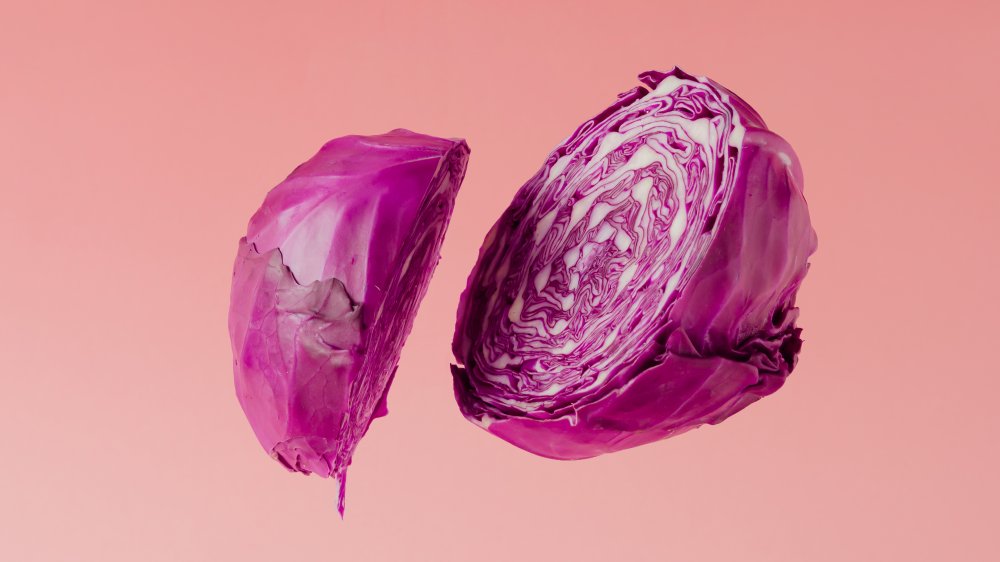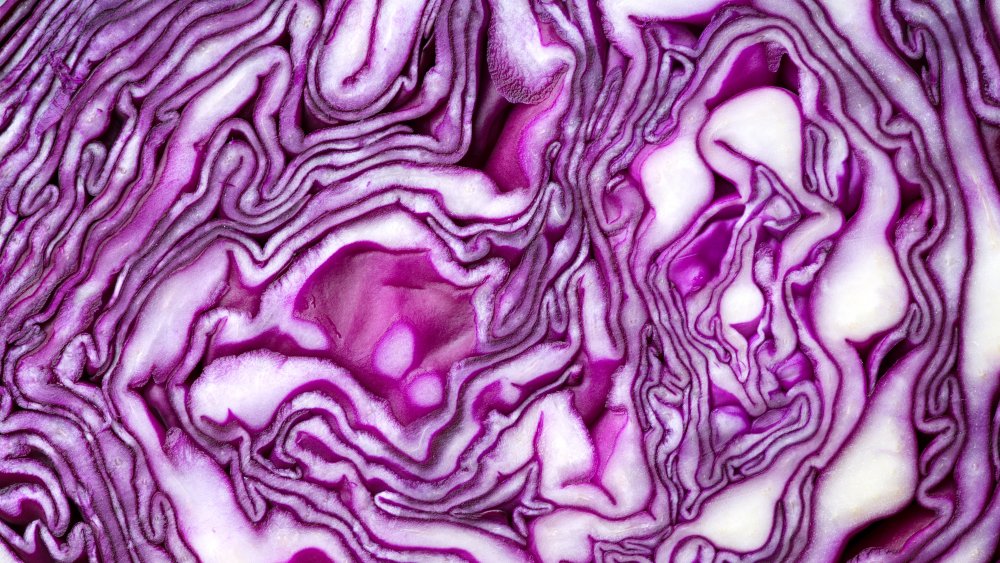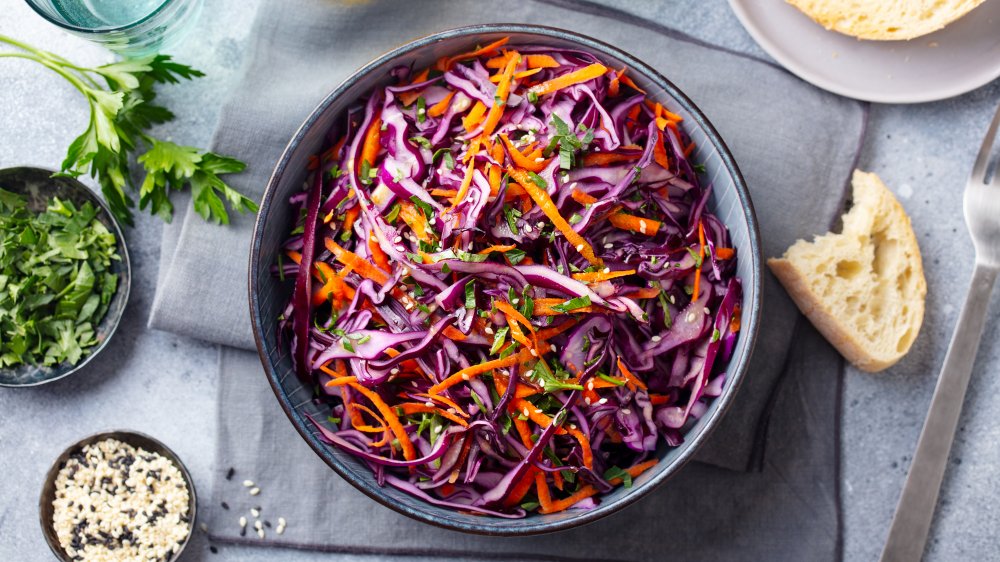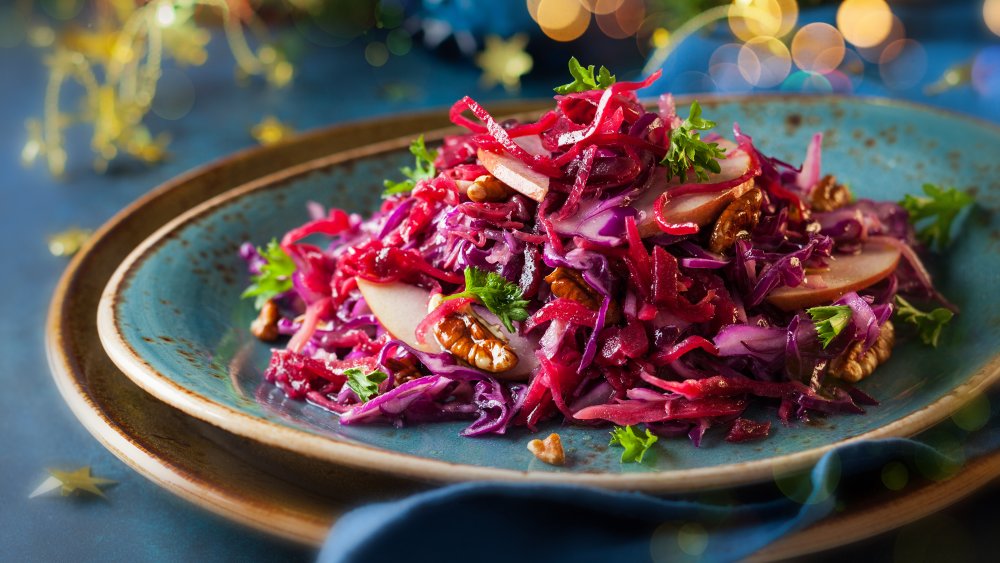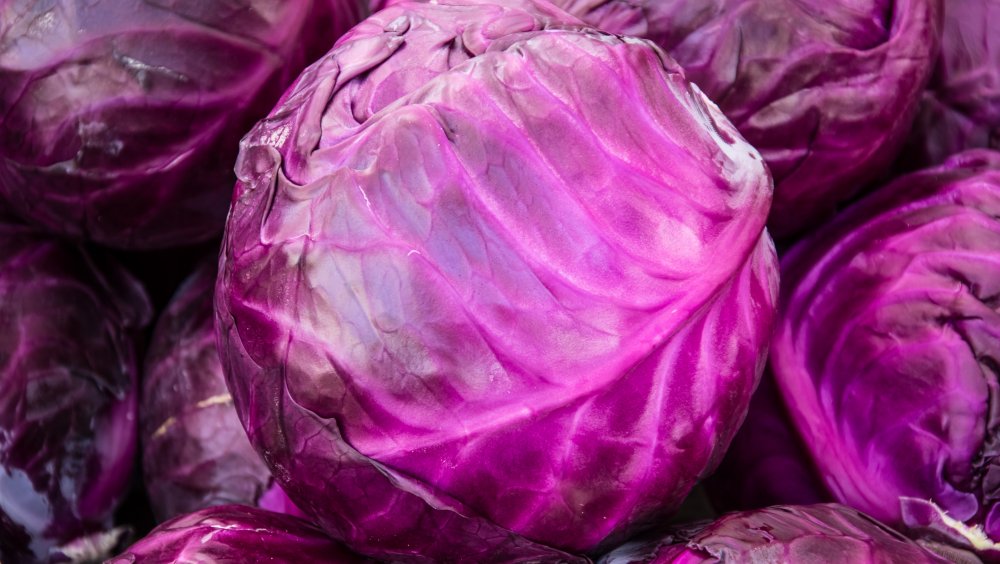When You Eat Red Cabbage Every Day, This Is What Happens
Cabbage has a bit of a reputation as a boring vegetable. But perhaps that notion should be applied only to plain, green cabbage because nothing livens up a plate like it being bright purple. In fact, it's sometimes difficult to believe that red cabbage is grown naturally and isn't a manmade creation. Red cabbage is used to color coleslaws and salads but is also used as the primary ingredient in dishes such as braised red cabbage (via Delia Online) and red cabbage sauerkraut (via The Spruce Eats).
To take in the health benefits of the vegetable, some people even feed cabbage through a juicer and drink it (via Everyday Health Recipes). In the same brassica family as vegetables such as cauliflower, Brussels sprouts, broccoli, and kale, it's full of vitamins and nutrients and can have a positive set of effects on the body if eaten long-term (via Encyclopedia Britannica). Here's what happens if you eat red cabbage every day.
Your bone strength will improve
Red cabbage contains a number of vitamins and nutrients which are essential for building and maintaining bone health (via Healthline). These include vitamin K — about a quarter of the daily recommended value of vitamin K1 is contained in a cup of red cabbage.
While vitamin K2 is found in animal products, vitamin K1 can be found in cruciferous vegetables such as broccoli, Brussels sprouts, and cabbage (via My Food Data). As well as playing an important role in blood clotting, Vitamin K1 has been shown to help treat osteoporosis since it promotes bone health.
Your immune system will gain strength
You might think of citrus fruits like oranges and grapefruits as being associated with vitamin C, but vegetables can be full of the vitamin as well. Surprisingly, a single cup of red cabbage will account for 85 percent of your daily recommended value of vitamin C (via Healthline). Vitamin C is best known for boosting the immune system but it also serves as an antioxidant which neutralizes the effect of free radicals, and is necessary in the formation of collagen, the most widely found protein in the body.
Vitamin C has been also associated with a reduction in the risk of certain cancers, although more research is needed to establish a firm link.
You'll have a lower chance of being anemic
Anemia is a common condition in which the body does not produce enough red blood cells to deliver oxygen to the organs and various bodily systems (via Web MD). Symptoms of anemia can be dizziness and pale skin. One of the most important vitamins in the production of red blood cells is folate, otherwise known as vitamin B9 (via Mayo Clinic). For every cup of chopped red cabbage, you'll take in 16 micrograms of vitamin B (via SF Gate). Red cabbage also contains trace amounts of iron and other B vitamins like B6 that help in the formation of red blood cells. Folate is also extremely important for pregnant women, which is why it is added to prenatal vitamins, as it helps in the development of the baby's spinal cord and brain (via Web MD).
Your digestive tract will be in good shape
Dietary fiber is broken down into two different types: soluble and insoluble (via The Physicians Committee for Responsible Medicine). Soluble fiber can be broken down by the body, whereas insoluble fiber cannot be digested and instead helps to push partially digested food through our intestinal system.
Red cabbage is full of insoluble fiber which assists with regularity and overall gut health (via Healthline). Insoluble fiber is the main source of "nutrition" for helpful bacteria in the stomach such as lactobacilli and bifidobacteria. Making sure that there are enough beneficial bacteria in the gut and that they have enough fuel is extremely important. It's long been known that the gut microbiome has had an effect on the digestive system, but research is beginning to show that it has an even greater role in the body's health than previously was thought. Studies have shown that having a healthy gut microbiome can contribute to a healthy immune system, can help with weight loss, and even alleviate depression (via Heathline).
